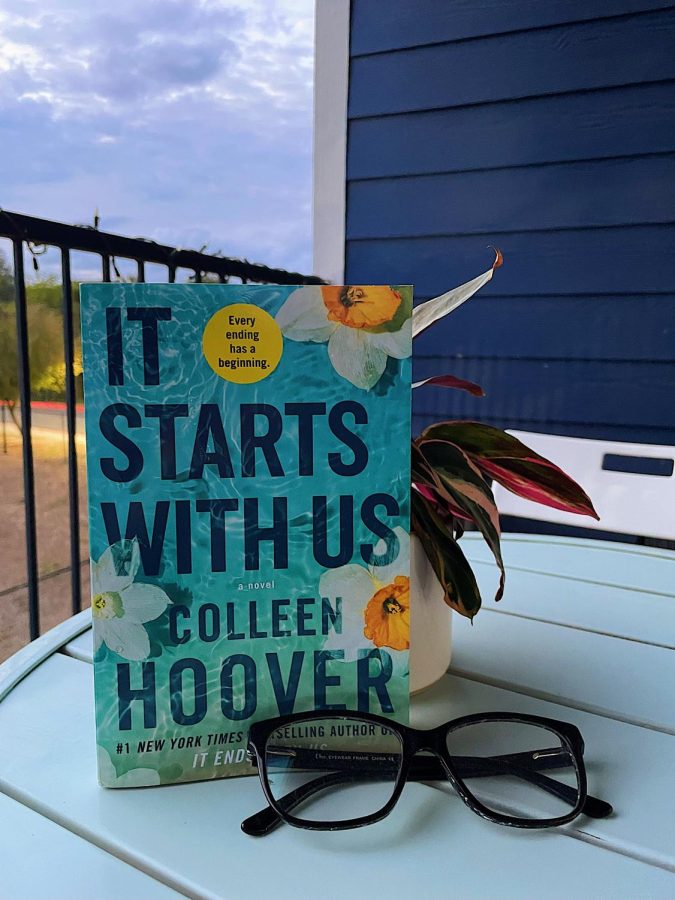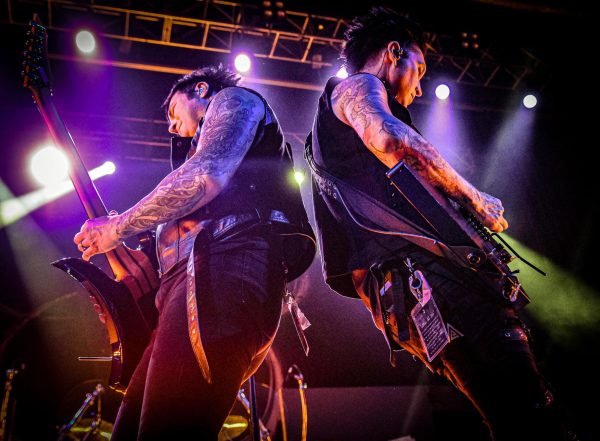TikTok cannot save this tragedy
The disappointing tale of ‘It Starts With Us’
October 25, 2022
This article contains spoilers for the book, “It Ends With Us.”
“Society has obviously been worshipping the wrong heroes this whole time because I’m convinced it takes less strength to pick up a building than it does to permanently leave an abusive situation,” Lily Bloom, “It Starts With Us.”
In the summer of 2021, TikTok got a whiff of author Colleen Hoover, and the internet was instantly enthralled. Hoover has since blown up to be one of the most mainstream and diverse authors considering her genres include romance, thriller and paranormal activity. Her most popular book, “It Ends With Us,” showcased the harsh reality of domestic violence and opened the audience’s eyes to the struggle of leaving an abusive relationship. While Hoover never planned on writing a sequel to the book, her online followers were persistent enough to change her mind. Thus was born the highly anticipated sequel, “It Starts With Us.”
“It Starts With Us” picks up where the epilogue of “It Ends With Us” finishes, with the main character, Lily, caring for her newly-born child while navigating a co-parenting lifestyle with her abusive ex-husband, Ryle. Lily rekindles an old flame with her first love, Atlas, who Ryle despised in the original book. Because of Ryle’s known hatred for Atlas, Lily is stuck between moving forward with Atlas or staying single to appease Ryle’s fragile, unstable heart.
Not all books need sequels, and unfortunately, this is one of them. “It Ends With Us” concludes in a place of truth and independence as Lily takes the necessary steps to separate herself from abuse, while “It Starts With Us” practically disregards the need for independence by immediately situating Lily in another relationship. Aside from that, Hoover wrote Atlas’ character in a way that made him seem like the perfect man with absolutely no flaws in sight, which is completely infeasible. Hoover went from perfectly portraying domestic violence in an authentic manner to unrealistically displaying a love story so shallow that it is painful.
At the end of the book, Hoover added acknowledgments, which included a dialogue of Hoover explaining how she was not planning on writing a sequel to this book, and that it should have stayed that way. Unfortunately, the success of the first book pressured her into writing a predictable, unnecessary romance with an underdeveloped plot that lacked depth and vision.
Rather than writing rushed, sloppy novels to appease their fans, authors should be taking the time to connect with the story they are writing and develop a clear-cut plotline. “It Starts With Us,” while highly anticipated, discredited the original book and left a feeling of disappointment within the readers. Hopefully, Hoover takes this as a learning lesson to not cave to the pressure imposed by her fanbase, but rather take the time to fully flesh out the story she intended to write from the beginning.












